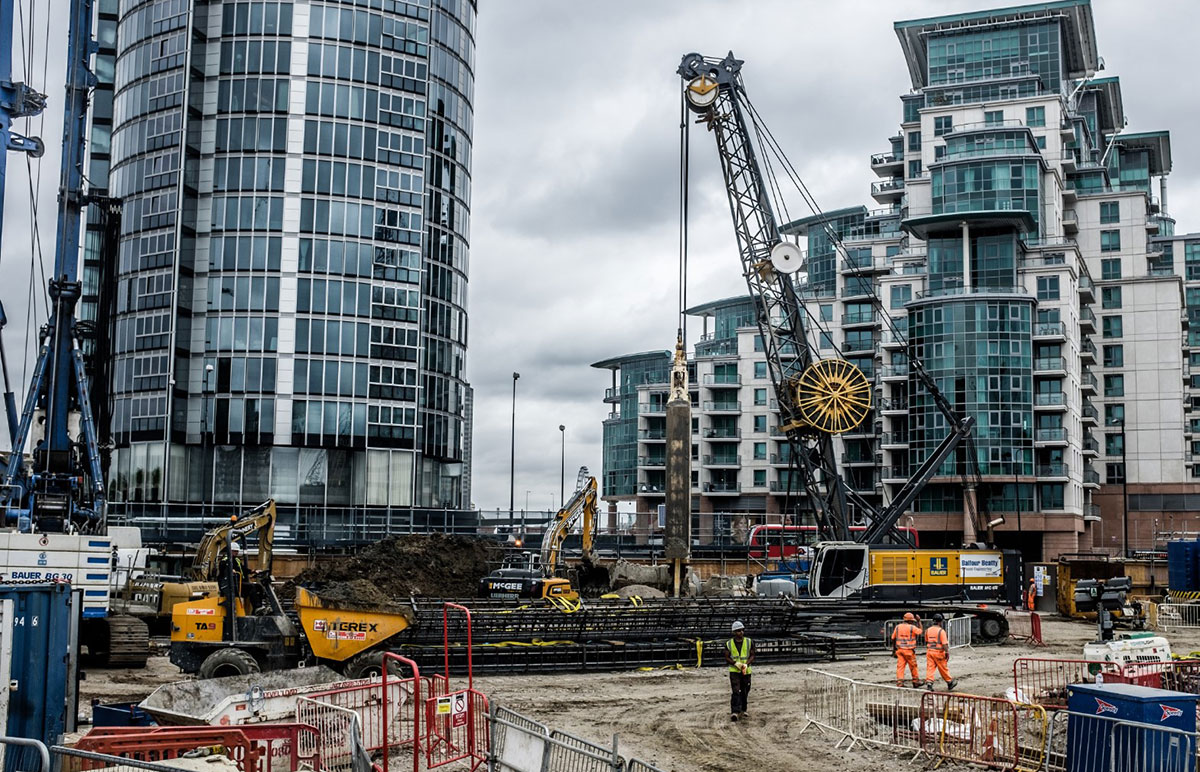A Biased View of Geotheta
A Biased View of Geotheta
Blog Article
The Only Guide to Geotheta
Table of ContentsGeotheta Fundamentals ExplainedRumored Buzz on GeothetaWhat Does Geotheta Do?The Only Guide to GeothetaNot known Factual Statements About Geotheta

They perform site examinations, gather samples, do lab examinations, and assess information to examine the viability of the ground for building and construction projects - Consulting Engineers. Based upon their searchings for, geotechnical engineers offer suggestions for structure style, incline security, preserving frameworks, and reduction of geotechnical hazards. They work together with other professionals, such as designers, structural engineers, and building teams, to guarantee that geotechnical considerations are integrated right into the total task layout and application
By assessing the actions and homes of soil and rock, they can identify potential geotechnical hazards such as landslides, dirt negotiation, or slope instability. Their competence assists avoid failings or mishaps that could endanger lives and building. Here are some comprehensive tasks and responsibilities of a geotechnical designer: Website Examination: Geotechnical designers conduct website investigations to gather information on subsurface problems.
They interpret the data to understand the properties and actions of the soil and rock, including their strength, permeability, compaction features, and groundwater problems. Geotechnical Analysis and Style: Geotechnical designers examine the information gathered during site investigations to analyze the stability and viability of the site for construction projects. They execute geotechnical estimations and modeling to review factors such as bearing ability, settlement, slope stability, lateral planet stress, and groundwater circulation.
Everything about Geotheta
Structure Style: Geotechnical designers play an important function in creating foundations that can securely sustain the desired framework. They examine the soil problems and tons needs to figure out the suitable structure type, such as superficial structures (e.g., footings), deep structures (e.g (https://www.dreamstime.com/ianhammond2191_info)., piles), or specialized techniques like dirt renovation. They take into consideration factors such as negotiation restrictions, bearing capacity, and soil-structure communication to develop optimum structure designs
They assess building and construction strategies, monitor website tasks, and carry out field evaluations to confirm that the style recommendations are adhered to. If unanticipated geotechnical problems arise, they analyze the scenario and offer recommendations for remediation or changes to the style. Risk Assessment and Mitigation: Geotechnical designers evaluate geotechnical hazards and dangers related to the job website, such as landslides, liquefaction, or soil disintegration.

Collaboration and Interaction: Geotechnical designers work closely with various other specialists entailed in a job, such as engineers, architectural engineers, and construction groups. Efficient interaction and partnership are necessary to integrate geotechnical considerations right into the overall job design and building and construction process. Geotechnical engineers give technical proficiency, response queries, and make sure that geotechnical needs are satisfied.
The 4-Minute Rule for Geotheta
Here are some kinds of geotechnical designers: Foundation Engineer: Foundation designers focus on developing and analyzing foundations for structures. They assess the dirt problems, lots requirements, and site attributes to establish the most ideal structure type and design, such as superficial foundations, deep foundations, or specialized methods like heap structures.
They evaluate the factors influencing slope stability, such as dirt properties, groundwater conditions, and slope geometry, and develop approaches to prevent slope failings and minimize threats. Quake Designer: Quake designers concentrate on assessing and making frameworks to endure seismic forces. They evaluate the seismic risk of look at this website a site, assess dirt liquefaction possibility, and establish seismic style requirements to make sure the safety and security and resilience of structures throughout quakes.
They execute area screening, gather samples, and assess the accumulated data to identify the soil residential properties, geologic formations, and groundwater problems at a site. Geotechnical Instrumentation Engineer: Geotechnical instrumentation engineers concentrate on monitoring and gauging the habits of soil, rock, and structures. They mount and preserve instrumentation systems that check variables such as dirt settlement, groundwater degrees, slope movements, and architectural displacements to examine performance and supply very early cautions of prospective concerns.
Geotheta for Beginners
They carry out examinations such as triaxial examinations, loan consolidation tests, direct shear tests, and leaks in the structure tests to gather information for geotechnical evaluation and layout. Geosynthetics Designer: Geosynthetics designers focus on the layout and application of geosynthetic materials, such as geotextiles, geogrids, and geomembranes. They use these materials to enhance soil stability, strengthen slopes, offer water drainage services, and control disintegration.
They have a tendency to be investigatory people, which means they're intellectual, introspective, and curious. They are curious, methodical, logical, analytical, and sensible. Some of them are additionally social, meaning they're kind, charitable, cooperative, patient, caring, useful, understanding, skillful, and pleasant - Geotechnical Engineers.
In the workplace setting, geotechnical engineers make use of specialized software program tools to perform calculations, create styles, and evaluate data. They prepare reports, review task specifications, connect with customers and staff member, and coordinate project activities. The workplace setting offers a favorable environment for study, analysis, and cooperation with other specialists associated with the project.
6 Easy Facts About Geotheta Explained
They often see job websites to conduct website investigations, examine geotechnical conditions, and collect information for evaluation. These sees involve traveling to various places, often in remote or challenging surfaces. Geotechnical designers might execute dirt sampling, conduct tests, and display building and construction tasks to make certain that the geotechnical facets of the project are being applied correctly.
Geotechnical engineers also function in specialized geotechnical research laboratories. In these centers, they perform experiments, execute tests on dirt and rock samples, and analyze the engineering residential or commercial properties of the materials. Geotechnical research laboratory designers function extensively in these environments, managing testing devices, operating instruments, and tape-recording information. They collaborate with other lab team to ensure accurate and trusted testing results.
Report this page